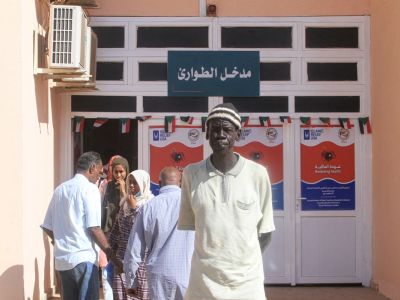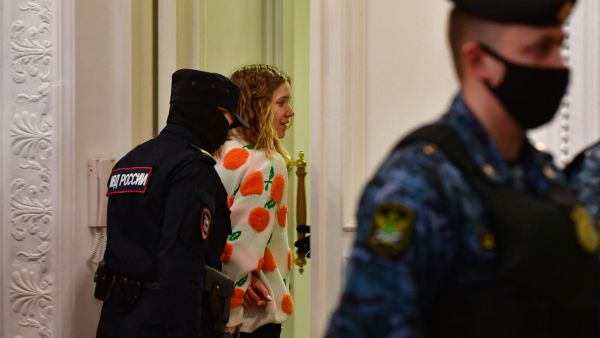ALBAWABA - On Thursday, a St. Petersburg court sentenced Daria Trepova to 27 years in prison for the murder of Maxim Fomin, also known as Vladlen Tatarsky, a prominent pro-war blogger.
According to Mediazona, the sentence is the harshest known to have been imposed on a woman in modern Russian history.
Trepova, 26, presented Tatarsky with a golden bust of himself at an April 2023 event in a St. Petersburg cafe popular with ultranationalists and pro-war activists. An explosive device hidden inside the statuette detonated a few minutes later, killing Tatarsky and injuring over 50 others.
Trepova was sentenced to 27 years in a medium-security penal colony by Russia's Second Western Military District Court after being found guilty of terrorism, illegal trafficking in explosive devices, and illegal document forgery.
Trepova sat in a glass box for defendants during the verdict hearing in court, wearing a white turtleneck jumper with a pattern of large knitted oranges. She was also ordered to pay a fine of 600,000 rubles ($6,750). Prosecutors sought a 28-year sentence for Trepova.
Prosecutors claim she knew the device was rigged with explosives when she gave it to Tatarsky, real name Maxim Fomin. Trepova denied knowing she had been recruited to commit murder again in court this week.
She claimed that she "never meant to hurt anyone" and begged forgiveness from the other victims and their families. "I still do not plead guilty to the charges, but I accept moral responsibility," she went on to say.
She claimed that her handlers in Ukraine lied to her about the contents of the package and "effectively sent a little girl with a bomb to her death".
Tatarsky was a prominent military blogger, one of a group of hardline correspondents who have amassed a large following since Russia launched its offensive.
They publish exclusive campaign information from frontline sources and occasionally criticize Moscow's military tactics, calling for a more aggressive assault.
Moscow has accused Ukraine of carrying out several attacks and killings within Russia, while also blaming Kyiv's Western allies and the domestic opposition.
Kyiv denied involvement, but appeared to take pleasure in the wave of assassinations and attacks on high-profile supporters of Moscow's offensive.









